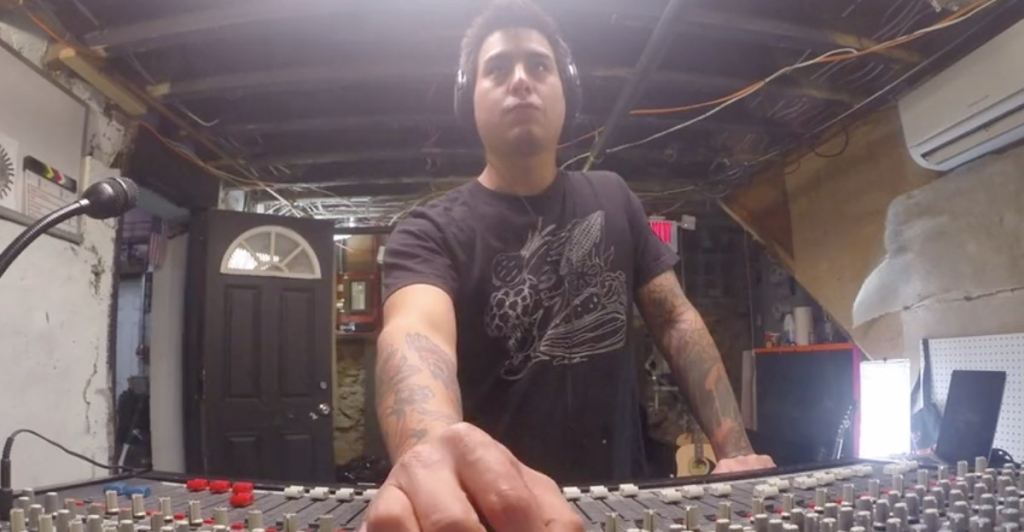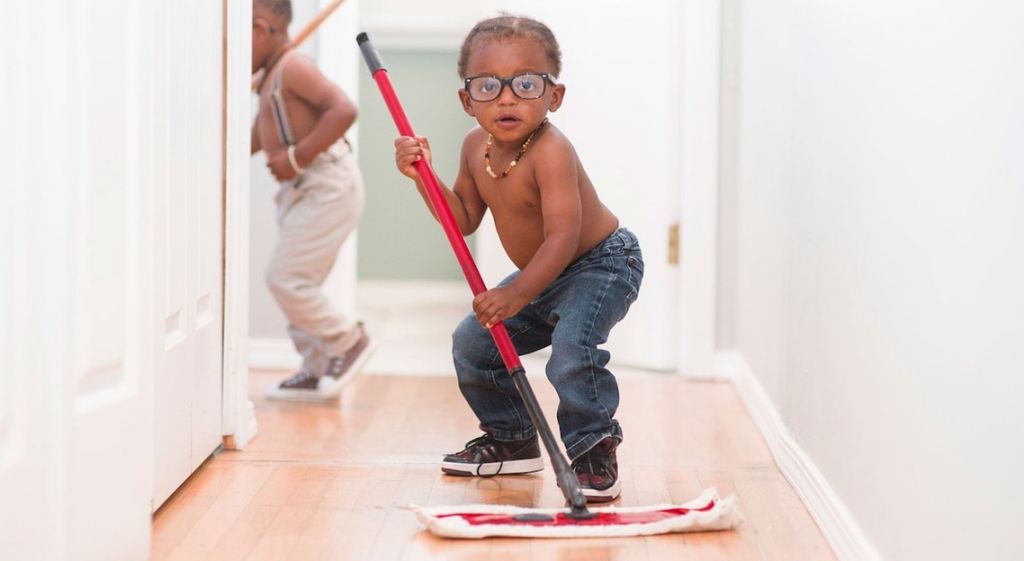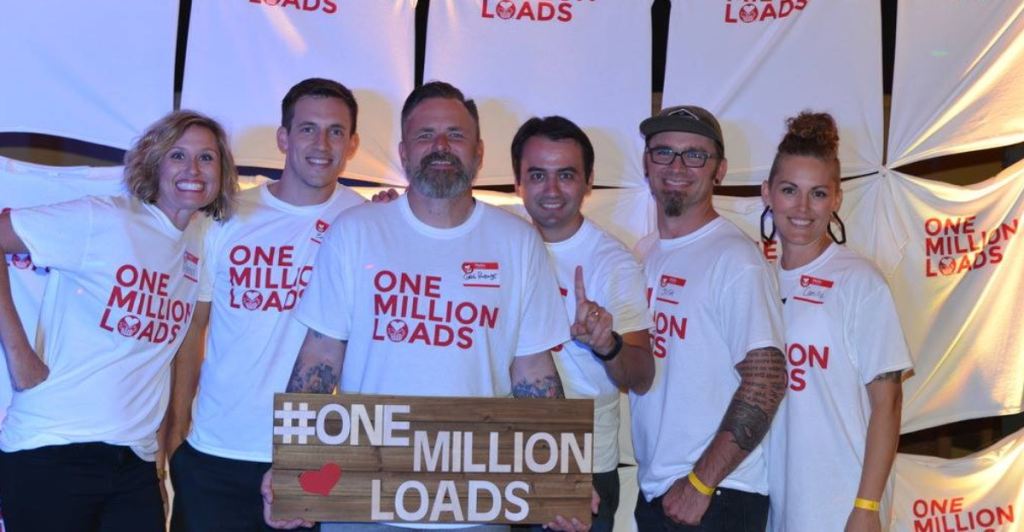Was your New Year’s Resolution to clean up and finally get your home organized?
If it was, you’re not alone.
Since the start of the year, cities all over the country are reporting more clothing donations than usual. And, of course, it seems like everyone is obsessed with the show “Tidying Up with Marie Kondo” and showing off their new home organization projects on social media.
So whether you were inspired by a TV show, the millionth fight with your partner over dirty dishes, or simply a walk past the Container Store, it’s always a good time to clean up and organize your space.
“There is a pleasure in imagining that this thing — being organized and clean — is a task that can be done,” explains Dr. Gail Saltz, associate professor of Psychiatry at the New York Presbyterian Hospital Weill-Cornell School of Medicine. “Once done, things would look nice and be less cluttered and you’d know where everything is. It’s sort of like imagining how good you’d feel after you do a spin class or a run.”
And that’s part of the reason, she adds, why so many people are inspired right now by Kondo’s Netflix show: it gives them the tools to plan out how they can get something done, and help them feel like their goals are, indeed, attainable.
The good news is that setting a goal like this — and working to achieve it — can have a lot of positive effects on your life and your health, as long as you tackle it in a manageable way. Here are just 7 of those benefits:
1. Cleaning up can alleviate stress.
A 2009 UCLA study found a correlation between women’s stress levels and untidy homes. Women who described their homes as untidy, messy, cluttered or unfinished had higher levels of cortisol — the body’s main stress hormone — than those that described their homes as “tidy” or “restorative.” They also had increased feelings of depression during the day.
This suggests that living in a cleaner, more organized space has a relaxing effect which can, in turn, lower your stress. On a slightly different note, according to MarketWatch, Americans spend about 55 minutes a day looking for stuff they own but can’t find — which is stressful and disheartening in a totally different way. Not only that, but sometimes mess can simply be overwhelming, leaving you feeling defeated and depressed.
2. It can also improve your relationships.
“For many people the issue of how clean and how organized to be is a real source of relationship stress,” says Dr. Saltz. This is especially true in couples. One half of the couple might really like things organized and obsessively clean. The other might think it’s no big deal if the dirty clothes pile up or if the house goes a week or two between vacuums.
“This can be a source of arguing, disagreement and upset that takes a lot of emotional space up,” she explains. That’s why it’s often important for couples to learn to compromise and agree on a certain standard of tidy for their shared space.
“Having a relatively clean and organized space is probably better for a couple’s wellbeing. I mean, unless you happen to have found your soulmate in filth,” she adds, with a laugh.
3. You’re more likely to socialize if you keep your space tidy.
Almost half of Americans say that if their house feels cluttered, they won’t invite people over. But not socializing in your space can have a tremendous impact on your friendships and your well-being, making you feel isolated and increasing your chances of depression or poor mental health.So get out those Clorox Disinfecting Wipes and start planning that potluck you’ve been meaning to! Your mind will thank you for it.4. Cleaning up can boost your creativity and productivity.
Clutter and dirt can have a negative impact on your ability to focus or process information, according to a Princeton Study. This can make you feel distracted and stressed out, inhibiting your ability to get things done — which is bad at home and at work.
If you take the time to clean up your desk and your home, it can help you be more efficient. “One’s productivity and creativity might be increased once one has completed organization — mostly because mentally, that distraction has been taken off the table,” explains Dr. Saltz. “It frees up more space to be productive and creative.”
5. It might also help you financially.
If you can’t find something in a messy house, but you really need it, you’re likely to give up looking for it and just buy a new one. This can waste your money, according to MarketWatch — and it won’t help your clutter problem either.
Extra stuff can also get expensive if you aren’t willing to let it go. More than 10 percent of American households rent storage spaces to hold their extra belongings — and they can spend as much as $1,000 a year on that facility. It should come as no surprise that the sale of home storage products, such as plastic boxes, has become a $10.5 billion business.
6. You might eat healthier.
A study in the journal Psychological Science suggests that people in orderly environments can show a preference for healthier snacks. That’s something that can benefit every one of us!
7. A clean bed could help you sleep better.
According to a National Sleep Foundation survey, people who make their beds every morning are 19 percent more likely to report getting a good night’s sleep.
Not only that, but that same survey found that 73% of people said that they got a better night’s rest if their sheets and bedding were clean. It simply made them feel more comfortable — helping them nod off at night. So if you’ve been sleeping in the same sheets for over a week, it might be a good idea to take a trip to Laundry Town.
Before you embark on your cleaning adventure, though, there are two important things to remember:
First, not everyone has the same definition of “clean” or “tidy.”
“There can be a lot of variability between one person’s ‘this is acceptable’ and another person’s ‘are you kidding me?” says Dr. Saltz. “I don’t think there is a uniform [standard] that everyone aspires to.”
In other words, maybe you’re the kind of person who finds that keeping a minimalist home is very relaxing. But someone else might find that same minimalist space depressing and too sparse. It’s okay to want a bookshelf chock full of books or a lot of sentimental things around you. The key is to find the level of tidy and organized that makes you happy.
As long as your space or clutter doesn’t interfere with your ability to function — i.e. you can never find things, you don’t want people over, it’s affecting your relationships or your job, etc. — then it’s okay to decide what organized looks like for you.
Second, don’t overwhelm yourself in the process of trying to better your space.
“Usually when you tell someone that they need a major life overhaul, it doesn’t work — sort of like the New Year’s resolution to lose 50 pounds. It’s probably not going to happen,” Dr. Saltz explains. “You have to break things into bite-sized chunks so that it feels manageable and not overwhelming or anxiety-producing.”
“If it feels anxiety-producing, most people won’t even embark on a project at all,” she continues. “So start one closet at a time and feel good about what you accomplish. That’s more likely to work for you in the long run.”
If you stress yourself out trying to achieve the impossible overnight, you’re never going to experience the benefits that cleaning up can have on your health, defeating the point of your newest New Year’s resolution in the first place.
Clorox believes clean has the power to transforms lives, which is why they’ve partnered with Upworthy to promote those same traits in people, actions and ideas. Cleaning up and transformation are important aspects of many of our social good stories. Check out the rest in the campaign to read more.


















